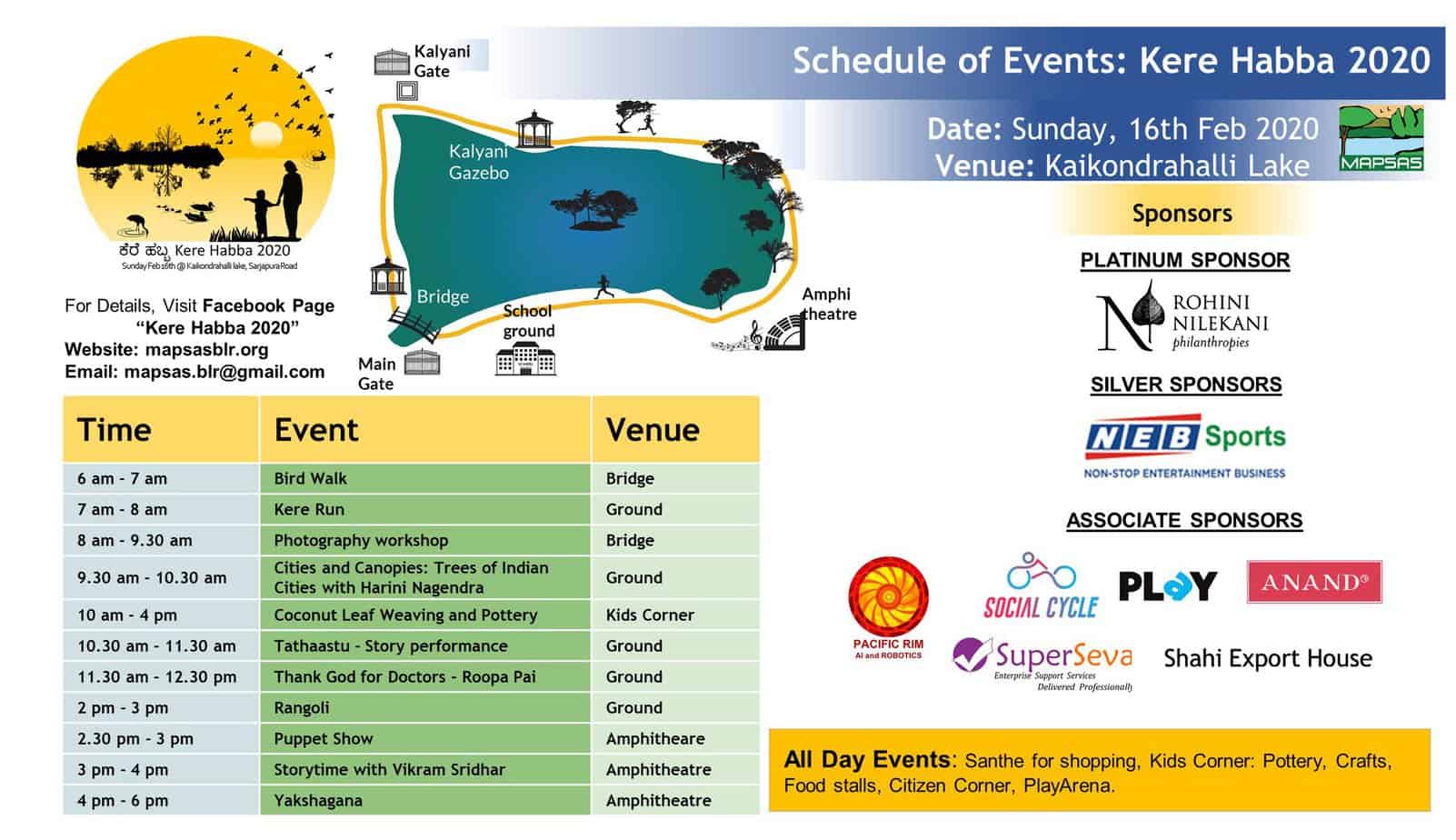This edition of Kaikondrahalli Kere Habba enters its sixth year. Kere Habba is a sunrise to sunset event that celebrates the gorgeous Kaikondrahalli Lake. It hosts a variety of sessions ranging from fitness to traditional art and crafts, for adults and children alike – all talking the same idiom of ecology and environment.
The day starts with a bird walk at 6am followed by a 5 km run on the jogging track around the lake. Special medals made of lake reeds will be awarded to all registered participants and finishers of the run apart from 5 lucky draw prizes.
Kere Habba will have a very interesting list of activities that will be conducted from 6 am to 6 pm in the evening. These include photography workshops, children’s corner, story telling, sessions by Roopa Pai, Harini, Nagendra and Vikram Sridhar. Novel events like puppet shows and yakshagana will be conducted in the evening session.
| Date: 16 February 2020 Time: 6 am onwards until evening Venue: Kaikondrahalli Lake, Bengaluru |
Food stalls are open all day from breakfast to evening snacks. Food options are vegetarian, largely homemade and organic, with local residents and businesses setting up delicious and freshly prepared food.
 The event is kept as green and waste free as possible by encouraging visitors to carry their own shopping bags and water bottles (refills available at the lake). All food vendors are instructed to use reusable or compostable cutlery. All visitors are requested to not bring any disposable plastics into the habba.
The event is kept as green and waste free as possible by encouraging visitors to carry their own shopping bags and water bottles (refills available at the lake). All food vendors are instructed to use reusable or compostable cutlery. All visitors are requested to not bring any disposable plastics into the habba.
We have also partnered with Social Cycle to provide rental bicycles to visitors to explore the events spread around the lake.
About Kaikondrahalli Lake
-
Rejuvenated in 2010. Receives a footfall of 500 visitors on a weekday and more than a 1000 on a weekend.
-
The most bio-diverse lake in Bangalore, with local variety of trees, reptiles, butterflies, amphibians and a safe haven for several residential birds and migratory birds. 50+ species of birds have been sighted here.
-
Cited by Niti Aayog as one of 2 model lakes in the country, for showing a successful model of lake restoration.
-
A major attraction for runners and walkers.
-
MAPSAS keeps alive the traditional uses of the lake such as allowing fodder for cattle, fishing and foraging.
-
Has a strong involvement of local community.
-
Hosts Kere Habba every year, a day long community event.
More information on individual events is available here.
[This article is based on a press release from Mahadevapura Parisara Samrakshane Mattu Abhivrudhi Samiti (MAPSAS), and has been published with minimal edits]